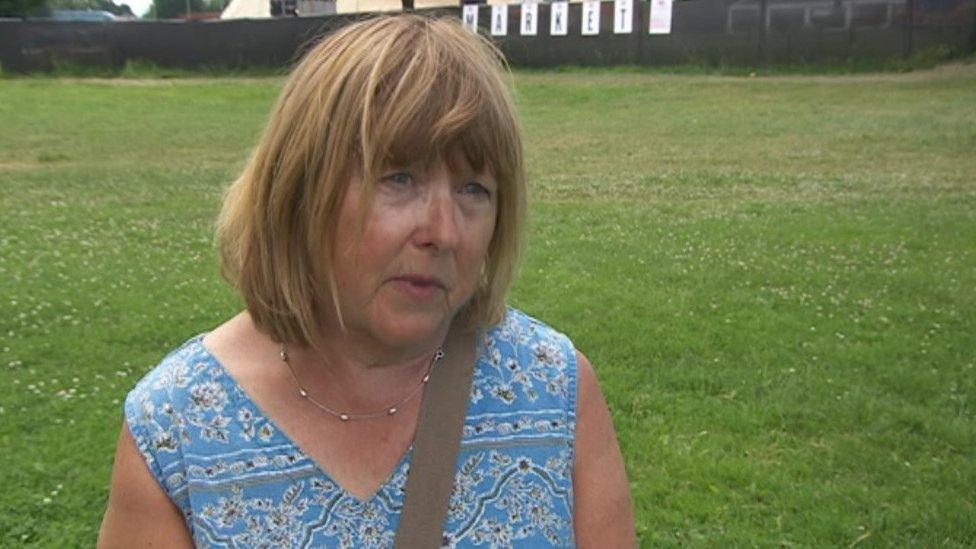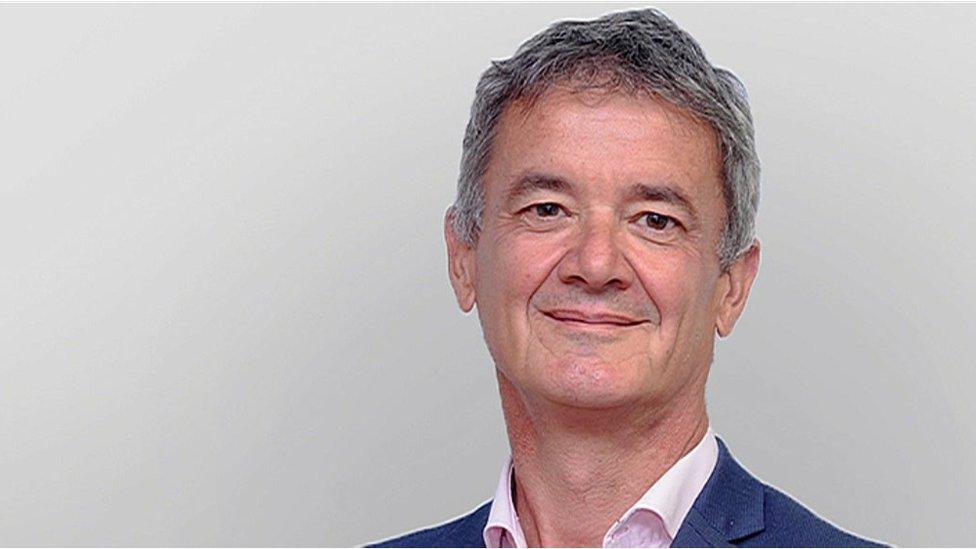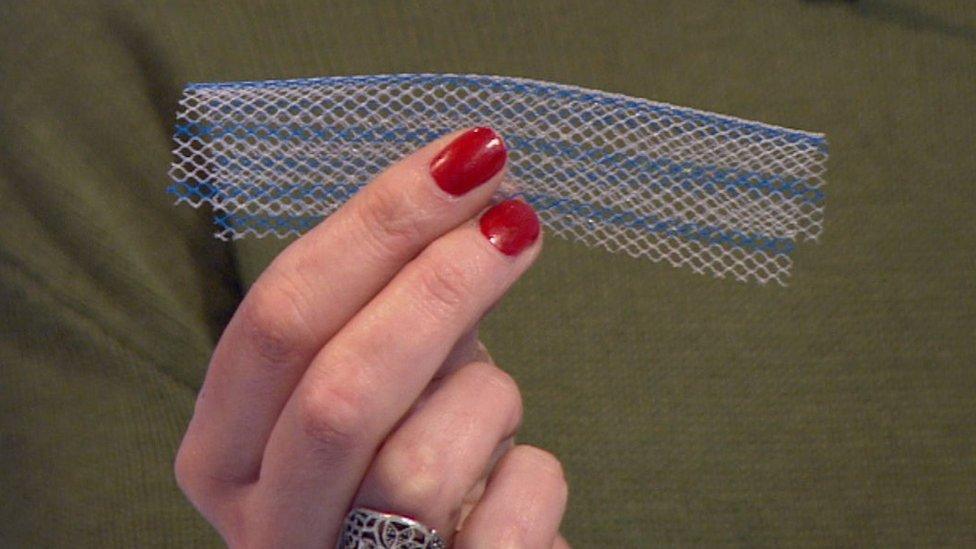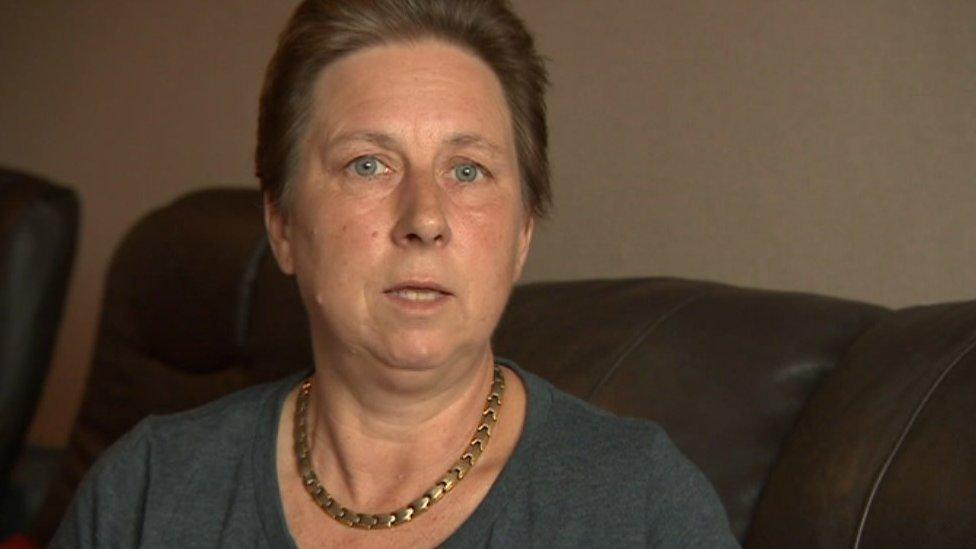'The pain can be excruciating' - bowel mesh patients want treatment answers
- Published

Jill Smith was one of Tony Dixon's patients and says she is still in agony
A group of more than 200 patients in severe pain after bowel mesh surgery have said there is no sign yet of treatment to alleviate their suffering.
This is despite an NHS recommendation that specialist centres should be set up for all mesh patients.
Most of the patients were treated, using mesh to fix prolapsed bowels, by Tony Dixon. He was later dismissed by Bristol's Southmead Hospital in 2019.
Jill Smith, a Tony Dixon patient, said: "The pain can be excruciating."
A BBC documentary first exposed serious concerns about how dozens of patients' lives were devastated after surgery by Mr Dixon at Southmead Hospital and Spire Hospital Bristol.
Both hospitals are continuing to work their way through hundreds of patients he treated to find out how many were affected.
A review in 2020 recommended specialist centres should be set up by the UK government to help those affected by mesh implants.
'Completely unacceptable'
But these centres only cover pelvic mesh problems, not the procedure they had - called rectopexy.
Paula Goss, also a Tony Dixon patient, said: "We should all get treatment and NHS England and NHS Improvement have said we will get an answer in the autumn. However people are suffering now and the autumn is too far away."
"By end of 2017, I was so ill and it turned out my entire colon was completely devastated and just wasn't working any more and was never going to work again."
Ms Smith added: "Not only did I have rectopexy but I've since found out that I've had hysteroprexy and a sactropexy - all this rubbish in my tummy and it's just horrible."
An NHS spokesperson said: "The NHS is aware of the issues raised by men and women regarding rectopexy and, working with patient groups, we are reviewing the most appropriate treatment for anyone affected."
North Bristol NHS Trust medical director, Chris Burton, said: "We took immediate action to ensure that what happened in this case couldn't happen again.
"We've been supporting patients where they need it and have learned lessons for future care.
"I am so sorry for the distress that may have been suffered by our patients affected by this case - it was completely unacceptable."

Follow BBC West on Facebook, external, Twitter, external and Instagram, external. Send your story ideas to: bristol@bbc.co.uk , external
Related topics
- Published25 June 2019

- Published27 March 2019

- Published5 April 2019

- Published16 October 2017
